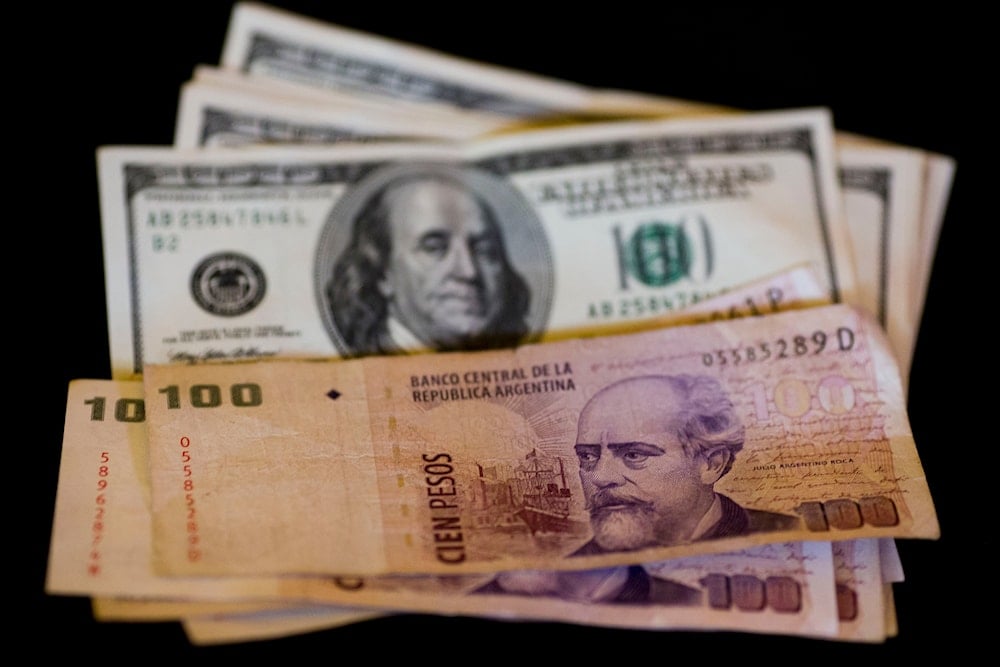Argentina devalues peso by over 50%
Argentina's new government suggests new spending cuts to tackle the country's economic crisis.
-

US dollar bills and Argentine pesos are displayed on a table at a currency exchange business in Buenos Aires, Argentina, Thursday, January 23, 2014. (AP)
Argentina's peso currency has been devalued by more than 50% due to massive spending cuts intended to address the country's economic crisis. The plans were introduced under the newly inaugurated Javier Milei, and included energy subsidies and canceling tenders for public works.
The economy minister, Luis Caputo, weakened the official exchange rate to 800 pesos a dollar after local markets closed on Tuesday, adding that the central bank would target a monthly devaluation of 2%. He explained that the moves were needed to cut the country's fiscal deficit and decrease the triple-digit inflation. That said, Argentina’s central bank is due to announce new monetary measures on Wednesday.
Read next: Argentina FM criticizes presidential candidate's "dollarizing economy"
“The objective is simply to avoid catastrophe and get the economy back on track,” Caputo said, in a recorded speech. “There is no more money.”
He argued that the country must address a significant fiscal deficit, which he estimated at 5.5% of the gross domestic product. He asserted that Argentina has developed a historical "addiction" to fiscal deficits, with 113 occurrences over the past 123 years. “We’re here to solve this problem at the root,” he said.
The South American country, a major grain producer, is grappling with an inflation rate approaching 150%, central bank reserves in significant deficit, and forty percent of its population living in poverty. Additional measures that have been disclosed involve reducing the number of government ministries by half.
Argentina is also burdened with a $44 billion (£35 billion) loan from the IMF.
IMF supports measures
“I welcome the decisive measures,” said Kristalina Georgieva, the managing director of the IMF, calling it “an important step toward restoring stability and rebuilding the country’s economic potential”.
I welcome the decisive measures announced by President @JMilei and his economic team today to address 🇦🇷 Argentina’s significant economic challenges—an important step toward restoring stability and rebuilding the country’s economic potential.https://t.co/1zZRES9anE
— Kristalina Georgieva (@KGeorgieva) December 12, 2023
According to the IMF, the measures are considered “bold” and would “help stabilize the economy and set the basis for more sustainable and private sector-led growth” after “serious policy setbacks” in recent months.
On Tuesday, Argentina's foreign exchange and grains markets experienced a lockdown as traders anticipated the unveiling of the new government's economic plan. Banks had pre-emptively factored in a significant devaluation, with some adjusting their foreign exchange rate to 700 pesos per dollar.

 3 Min Read
3 Min Read








